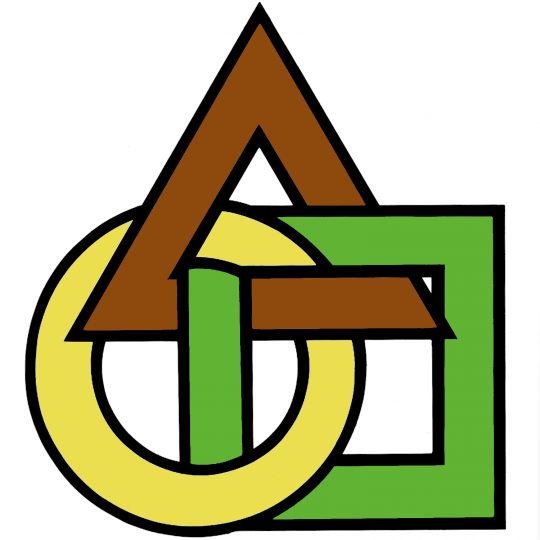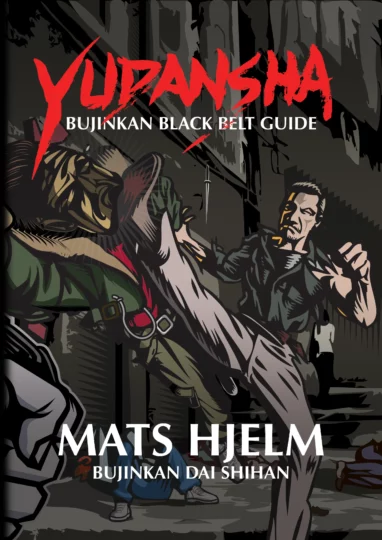From 武神館兜龍 Bujinkan Toryu by admin
The Japanese concept of Ten–Chi–Jin is a fundamental principle in martial arts that represents the interconnectedness of heaven, earth, and man. In this article, we will explore the origins of Ten, Chi, Jin in Hinduism and its comparison with Western philosophies like the Christian trinity.
Ten-Chi-Jin: Origins and Meaning
Ten, Chi, Jin is a concept that originated in Japan but has its roots in Hinduism. In Hinduism, the Trimurti represents the three aspects of the divine: Brahma (the creator), Vishnu (the preserver), and Shiva (the destroyer). Similarly, Ten, Chi, Jin represents the three dimensions of existence: 天 Ten (heaven), 地 Chi (earth), and 人 Jin (man).
Ten represents the divine or spiritual realm, while Chi represents the physical or material world. Jin represents humanity and the connection between the spiritual and physical realms. The concept of Ten, Chi, Jin emphasizes the interdependence and harmony between these three aspects of existence.
Ten-Chi-Jin and Western Philosophies
While Ten, Chi, Jin has its roots in Hinduism, there are similarities between this concept and Western philosophies like the Christian trinity. The Christian trinity represents the belief in one God in three persons: the Father, the Son, and the Holy Spirit.
Similarly, Ten, Chi, Jin recognizes the interconnectedness of three distinct entities. In both concepts, there is an emphasis on the importance of the balance and harmony between these entities.
However, there are also differences between these concepts. The Christian trinity emphasizes the unity of the three persons, while Ten, Chi, Jin recognizes the individuality of each element.

Ten-Chi-Jin in Martial Arts
In martial arts, the concept of Ten, Chi, Jin is fundamental. Martial artists use this principle to understand the interconnectedness between their physical techniques, their mental focus, and their spiritual development.
For example, a punch can be seen as a manifestation of Jin, as it is a physical expression of the power that comes from both heaven (Ten) and earth (Chi). By understanding this concept, martial artists can learn to balance their physical techniques with their mental and spiritual development, leading to a more holistic approach to their practice.
The Importance of Balance and Harmony
One of the key aspects of Ten, Chi, Jin is the emphasis on balance and harmony. Martial artists who understand this concept can learn to balance their physical techniques with their mental and spiritual development. By doing so, they can become more effective practitioners, not just in their physical techniques but also in their overall approach to martial arts.
Conclusion
In conclusion, Ten, Chi, Jin is a fundamental concept in Japanese martial arts that represents the interconnectedness of heaven, earth, and man. While it has its roots in Hinduism, there are similarities between this concept and Western philosophies like the Christian trinity. By understanding this concept, martial artists can learn to balance their physical techniques with their mental and spiritual development, leading to a more holistic approach to their practice. The key to success in martial arts lies in achieving balance and harmony between these three aspects of existence.
Yudansha – Bujinkan Black Belt Guide
Discover the essential techniques of Bujinkan Dojo with Mats Hjelm’s “Yudansha.” This comprehensive manual is based on the Japanese concept of Ten, Chi, Jin, providing a practical and holistic approach to mastering this ancient martial art.
With detailed descriptions and accompanying photographs, “Yudansha” offers a step-by-step guide to striking, throwing, grappling, and weapons techniques. But it’s more than just a technique manual – it’s a guide to personal growth and spiritual development.
By applying the Ten, Chi, Jin principle to your training, you’ll not only become a more skilled martial artist but also a more balanced and harmonious person. Whether you’re a beginner or an experienced practitioner, “Yudansha” is an essential addition to your library. Order your copy today and take the first step on your journey to mastery.
The post Ten-Chi-Jin: A Comparison of Eastern and Western Philosophies appeared first on 武神館兜龍 Bujinkan Toryu.…
Read More